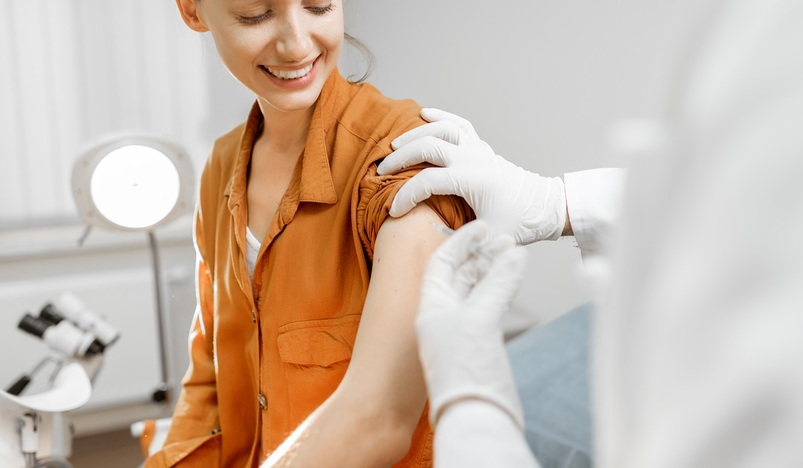
Vaccination Guidelines
As the debate between pro- and anti-vaccination heats up, so does the rate of COVID-19 infections in some parts of the world. In these times when the pandemic doesn’t seem to be letting up, it’s important to get vaccinated to protect yourself and all of your loved ones.
However, arriving at the decision to get inoculated isn’t an easy one. Reports from all over the globe indicate some cases of vaccinees developing serious conditions or, worse, losing their lives for unclear reasons.
To be safe from the potential adverse effects of immunization, read on for a curated guide on what to do before, during, and after a shot. But first, you have to be aware of the possible risks involved in vaccinations.
The Potential Dangers Of Getting Vaccinated
Vaccine hesitancy is controversial yet understandable, especially following reports of serious health consequences after COVID-19 jabs. While underlying health conditions are likely to blame for such outcomes, some may be a result of the manufacturer’s neglect that eventually led to product defects.
In the United States, a vaccine injury victim may file a claim for indemnification under the National Vaccine Injury Compensation Program (NVICP). But unlike with traditional personal injury lawsuits, the plaintiff for this kind of case must be represented by legal counsel authorized by the vaccine court, such as defective product lawyer Mark Sadaka and his associates.
Excluding death, the adverse effects of inoculation may range from blood clots and stroke to neurological problems. It’s advisable to take these into account prior to undergoing vaccinations.
What To Do Before Vaccination
The following steps should be observed not only for COVID-19 vaccines but for any type of immunizations you may need.
1. Research The Vaccine
Find out which certain types of vaccines should be avoided if you’re suffering from chronic health conditions. Given that such injections have accompanying risks, you should learn more about the one you’re planning to have. Understand how it works, and look into the potential adverse effects.
Gather information by checking reliable sources and official websites. Take social media posts about vaccines with a grain of salt, unless they’re coming from the official account of the government or a reputable health agency.
2. Be Well Prepared
Because COVID-19 is showing no signs of slowing down, countries are racing against time to administer preventive doses to their population. If you’re preparing for a COVID-19 immunization, make sure you have all the items required by your respective health agency, including protective facial covers.
• Wear a loose, short-sleeved shirt to give the health care professional access to your arm.
• Inform health workers if you’re taking any maintenance medicines.
• Eat well and stay hydrated before your vaccination schedule to help strengthen immunity.
• Get quality sleep for the same purpose.
• Notify your supervisors about the schedule as you may need to take a day or two off.
• Refrain from taking painkillers shortly before your jab as doing so may reduce the vaccine’s efficacy. Take note that the minor side effects of immunization—arm discomfort, muscle pain, and sluggishness—are indications that your body’s learning to produce antibodies to combat the virus.
• Avoid taking steroids at least a week before your schedule because they’re known to suppress inflammation. Inflammation is your body’s way of fighting foreign bodies, and taking steroids may thwart your body’s response system after getting a vaccine.
• Hold off facial fillers until after you get your shot. According to the U.S. Food and Drug Administration (FDA), a 2020 study showed that some vaccines who’ve had cosmetic facial fillers for up to six months prior to immunization experienced swelling after their COVID-19 shot. It’s unknown whether the same can be said for other vaccines.
What To Do During Vaccination
Vaccine injections are administered in the same way, so make sure to relax. A rising blood pressure may disqualify you from getting a shot.
• Practice self-relaxation methods if you’re feeling anxious.
• Most may advise you to look away from the needle. But making sure that you get your much-needed shot can give you peace of mind, too.
• Inform health workers of any health issues you’re experiencing if you haven’t yet. Extra measures may be required to make sure you remain safe after your shot.
• Offer your nondominant arm to make sure you can still perform regular activities by preserving your strong arm.
What To Do After Vaccination
Keep the following in mind in case it’s your first time to be vaccinated as an adult and have no idea what to expect:
• Stay for a few minutes in the vaccination area for observation.
• Notify health care workers immediately if you feel off. Severe reactions could include vomiting, fainting, breathing problems, and itching.
• Minor side effects are expected after your shot. Arm pain, lethargy, and body pains are telltale signs that your body’s fighting the infection. These will go away on their own in a day or two.
• Practice self-care when you get home. Have adequate rest, and take paracetamol if you experience flu-like symptoms. Lightly massage your arm to ease discomfort.
• Hydrate properly and eat well to boost your immune system.
• Don’t smoke or drink alcohol as it may interfere with your vaccine’s efficacy.
The Bottom Line
Vaccines are created with the intention to combat specific infections. But those products may not work in the same way once it enters the human body. The adverse effects of immunization can be triggered by many factors, including product deficiencies or a person’s underlying health conditions. For the former, victims may seek the help of a qualified lawyer. For the latter, careful preparation alongside proper coordination with health care providers are needed to reduce serious risks.
.jpg)
Qatar Secures Place Among the World's Top 10 Wealthiest Nations
.jpg)
Hamad International Airport Witnesses Record Increase in Passenger Traffic

Saudi Arabia: Any visa holder can now perform Umrah

What are Qatar's Labour Laws on Annual Leave?
Leave a comment